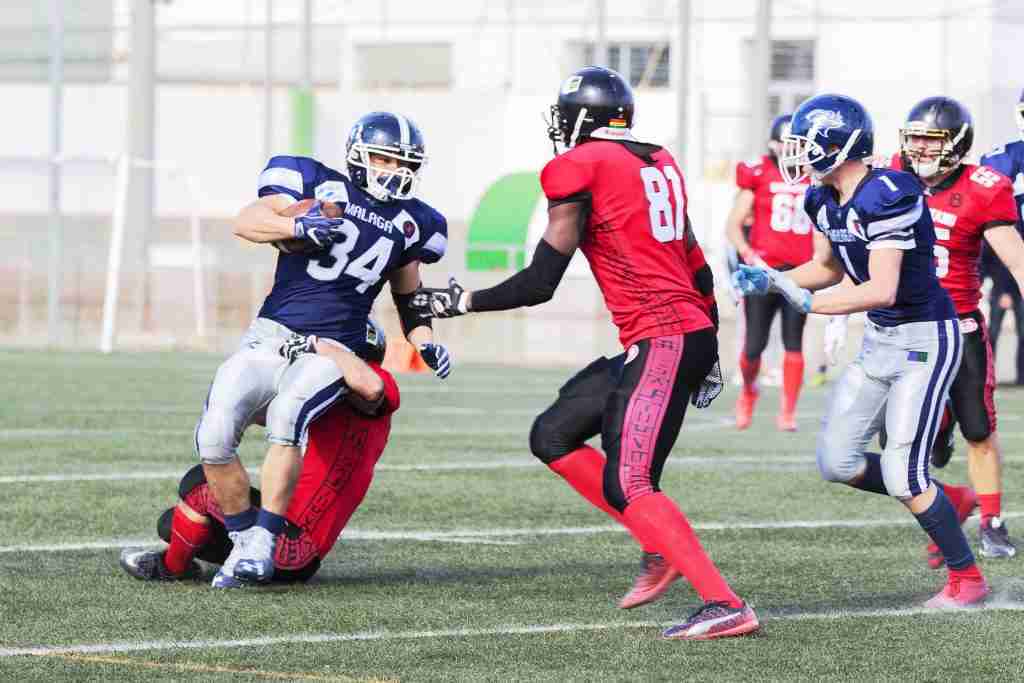Are you curious about how soccer players manage to stay hydrated during intense matches? It’s no secret that soccer is a physically demanding sport, requiring players to run tirelessly for long periods of time. With all that exertion and sweating, it’s important for athletes to replenish their fluids to avoid dehydration. In this article, we’ll explore some of the strategies and methods that players employ to stay hydrated on the field. From water breaks to sports drinks, we’ll uncover the secrets behind keeping soccer players cool, refreshed, and performing at their best. So, let’s jump right in and discover the hydration techniques that keep the game going!

Significance of staying hydrated during soccer matches
Staying hydrated during soccer matches is of utmost importance for both the physical and mental abilities of players. Hydration plays a crucial role in maintaining optimal performance on the field. Dehydration can lead to a decline in overall endurance, muscle strength, speed, reaction time, and decision-making skills. As soccer is a high-intensity sport that demands constant running and physical exertion, adequate hydration is essential to ensure players can perform at their best throughout the game.
Importance of hydration for performance
Proper hydration is directly linked to improved performance on the soccer field. When you are well-hydrated, your body’s temperature regulation mechanisms function optimally, preventing overheating and reducing the risk of heat-related illnesses or injuries. Hydration also aids in the transportation of nutrients to muscles, keeping them fueled for optimal performance. It helps maintain the balance of electrolytes in your body, ensuring efficient muscle contractions and reducing the risk of cramps.
Effect of dehydration on physical and mental abilities
Dehydration negatively impacts both physical and mental abilities, severely compromising player performance during soccer matches. When you are dehydrated, your body’s ability to cool down through sweating decreases, leading to an increased risk of heat exhaustion or heat stroke. Dehydration also affects muscle function, causing fatigue, cramping, and reduced endurance. Moreover, cognitive abilities and decision-making skills can be impaired due to dehydration, affecting a player’s ability to react quickly, make accurate passes, and maintain good spatial awareness on the field.
Pre-match hydration strategies
To ensure optimal hydration during soccer matches, it is crucial to implement effective pre-match hydration strategies. Hydrating in the days leading up to the match is essential. This involves consuming enough fluids throughout the week to achieve a state of pre-match hydration. A general guideline is to drink at least 8 cups (64 ounces) of water per day, but individual requirements may vary.
Additionally, focusing on hydration on the day of the game is equally important. It is recommended to drink an additional 16 to 20 ounces of water or a sports drink 2 to 3 hours before the match. This allows your body to absorb the fluids adequately and ensures you start the game properly hydrated.

Hydration during halftime
Halftime serves as a crucial opportunity to replenish fluids and maintain hydration levels. Quick hydrating options such as drinking water or sports drinks should be readily available to players during halftime. This allows them to quickly quench their thirst and replace any fluids lost through sweating during the first half of the game.
When considering the choice between sports drinks and water during halftime, it’s important to understand the specific needs of your body. Water is an excellent choice for hydration, as it efficiently replaces lost fluids. Sports drinks, on the other hand, provide additional benefits by replenishing electrolytes and carbohydrates lost during intense physical activity. If you have been sweating profusely and need to replenish both fluids and electrolytes quickly, a sports drink may be a suitable option.
Hydration strategies during the game
During the game, it is essential to have on-field water bottles readily available. These bottles should be easily accessible, allowing players to hydrate whenever needed. Taking regular water breaks throughout the game not only helps prevent dehydration but also serves as a mental break, allowing players to refocus and recharge.
Communication with coaches and medical staff about hydration needs is crucial. Players may have different hydration requirements depending on factors such as body composition, sweat rate, and environmental conditions. Therefore, open dialogue between players and the coaching staff is key in ensuring individual hydration needs are met.

Effects of weather on hydration
The weather conditions during a soccer match significantly impact hydration needs. Playing in hot and humid conditions poses unique challenges, as the body loses a significant amount of fluids through sweating. In such conditions, players need to pay extra attention to their hydration levels and adapt their hydration plans accordingly.
It is essential to monitor weather forecasts and plan hydration strategies accordingly. Knowing the expected temperature, humidity, and sun exposure can help players and coaches implement appropriate measures to combat dehydration. Increased fluid intake before and during the game, as well as regular breaks for hydration, become even more crucial in hot and humid conditions.
Hydration guidelines for professional soccer players
Professional soccer players often follow specific hydration guidelines provided by sports nutritionists. These guidelines take into account the unique demands of the sport and the individual needs of each player. Sports nutritionists work closely with players to develop personalized hydration strategies that optimize performance on the field.
Factors such as weight, sweat rate, climate, and training intensity are considered when determining hydration recommendations. Professional soccer players may undergo sweat testing to accurately assess their fluid and electrolyte losses during intense training sessions and matches. This information helps create personalized hydration plans tailored to each player’s requirements.
Hydration and performance evaluation
Monitoring hydration levels is crucial for players to maintain optimal performance on the soccer field. One common method is using urine color charts. Players can monitor the color of their urine to gauge their hydration status. A pale yellow color indicates a well-hydrated state, while darker urine suggests dehydration.
Wearable technology has also become increasingly popular for tracking hydration. Devices such as smartwatches or fitness trackers can provide real-time data on heart rate, sweat rate, and body temperature, giving players insights into their hydration needs during training sessions and matches. This technology allows for a more comprehensive evaluation of hydration and helps players make informed adjustments to their fluid intake as needed.
Hydrating post-match
Replenishing fluids after a soccer match is essential for recovery and maintaining overall hydration. Recovery beverages and foods play a crucial role in replenishing fluids, electrolytes, and glycogen stores in the muscles. Sports drinks, electrolyte-infused water, and protein shakes can aid in rehydration and promote muscle recovery after intense physical activity.
In addition to fluids, it is important to focus on replenishing electrolytes after a match. Electrolytes such as sodium, potassium, and magnesium are essential for proper muscle function and hydration. Consuming foods rich in these electrolytes, such as bananas, oranges, and coconut water, can aid in restoring electrolyte balance and promoting optimal recovery.
Hydration challenges during tournaments and travel
Playing in tournaments or traveling for away matches presents unique hydration challenges for soccer players. During long tournaments, players may have multiple matches in a short period, making it crucial to maintain hydration levels consistently. Adequate fluid intake before, during, and after each match becomes even more important to prevent dehydration and depletion of energy stores.
Traveling to different time zones can also impact hydration. Jet lag can disrupt regular hydration routines, as it may affect appetite, fluid intake, and sleep patterns. It is important for players to plan their hydration strategies accordingly, adjusting fluid intake based on the time difference and potential disruptions to their regular routines.
Conclusion and key takeaways
Recognizing the significance of hydration for optimal performance is crucial for soccer players. Staying hydrated before, during, and after matches plays a key role in maintaining physical and mental abilities on the field. Implementing effective hydration plans, such as pre-match hydration strategies, on-field hydration options, and personalized hydration guidelines, ensures players can perform at their best.
Monitoring hydration levels using urine color charts and wearable technology allows players to make informed decisions about their fluid intake and make necessary adjustments based on their individual needs. Post-match recovery practices that include replenishing fluids and electrolytes aid in muscle recovery and overall hydration.
Challenges in maintaining hydration during tournaments and travel require careful planning and adjustment of hydration strategies. Recognizing the importance of hydration and implementing appropriate measures can help soccer players optimize their performance and minimize the risk of dehydration-related issues.
By prioritizing hydration and implementing effective hydration plans, soccer players can enhance their performance, endurance, and overall well-being on the field.


